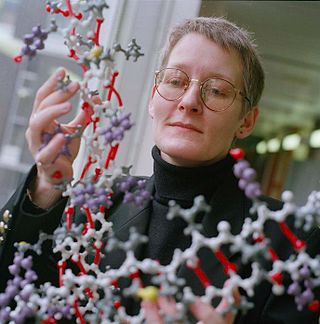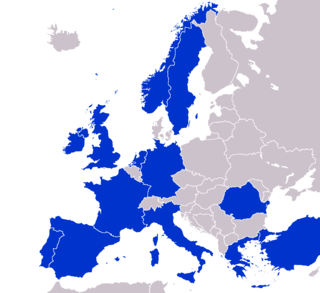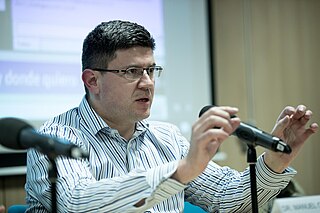
The European Molecular Biology Laboratory (EMBL) is an intergovernmental organization dedicated to molecular biology research and is supported by 28 member states, one prospect state, and one associate member state. EMBL was created in 1974 and is funded by public research money from its member states. Research at EMBL is conducted by approximately 110 independent research and service groups and teams covering the spectrum of molecular biology and bioinformatics. The list of Groups and Teams at EMBL can be found at www.embl.org. The Laboratory operates from six sites: the main laboratory in Heidelberg, and sites in Hinxton, Grenoble (France), Hamburg (Germany), Rome (Italy) and Barcelona (Spain). EMBL groups and laboratories perform basic research in molecular biology and molecular medicine as well as train scientists, students, and visitors. The organization aids in the development of services, new instruments and methods, and technology in its member states. Israel is the only full member state located outside Europe.

UniProt is a freely accessible database of protein sequence and functional information, many entries being derived from genome sequencing projects. It contains a large amount of information about the biological function of proteins derived from the research literature. It is maintained by the UniProt consortium, which consists of several European bioinformatics organisations and a foundation from Washington, DC, United States.
The European Bioinformatics Institute (EMBL-EBI) is an intergovernmental organization (IGO) which, as part of the European Molecular Biology Laboratory (EMBL) family, focuses on research and services in bioinformatics. It is located on the Wellcome Genome Campus in Hinxton near Cambridge, and employs over 600 full-time equivalent (FTE) staff. Institute leaders such as Rolf Apweiler, Alex Bateman, Ewan Birney, and Guy Cochrane, an adviser on the National Genomics Data Center Scientific Advisory Board, serve as part of the international research network of the BIG Data Center at the Beijing Institute of Genomics.
The myGrid consortium produces and uses a suite of tools design to “help e-Scientists get on with science and get on with scientists”. The tools support the creation of e-laboratories and have been used in domains as diverse as systems biology, social science, music, astronomy, multimedia and chemistry.
The EB-eye, also known as EBI Search, is a search engine that provides uniform access to the biological data resources hosted at the European Bioinformatics Institute (EBI).
The European Molecular Biology network (EMBnet) is an international scientific network and interest group that aims to enhance bioinformatics services by bringing together bioinformatics expertises and capacities. On 2011 EMBnet has 37 nodes spread over 32 countries. The nodes include bioinformatics related university departments, research institutes and national service providers.

The Wellcome Genome Campus is a scientific research campus built in the grounds of Hinxton Hall, Hinxton in Cambridgeshire, England.

Dame Janet Maureen Thornton, is a senior scientist and director emeritus at the European Bioinformatics Institute (EBI), part of the European Molecular Biology Laboratory (EMBL). She is one of the world's leading researchers in structural bioinformatics, using computational methods to understand protein structure and function. She served as director of the EBI from October 2001 to June 2015, and played a key role in ELIXIR.

ChEMBL or ChEMBLdb is a manually curated chemical database of bioactive molecules with drug inducing properties. It is maintained by the European Bioinformatics Institute (EBI), of the European Molecular Biology Laboratory (EMBL), based at the Wellcome Trust Genome Campus, Hinxton, UK.

The European Nucleotide Archive (ENA) is a repository providing free and unrestricted access to annotated DNA and RNA sequences. It also stores complementary information such as experimental procedures, details of sequence assembly and other metadata related to sequencing projects. The archive is composed of three main databases: the Sequence Read Archive, the Trace Archive and the EMBL Nucleotide Sequence Database. The ENA is produced and maintained by the European Bioinformatics Institute and is a member of the International Nucleotide Sequence Database Collaboration (INSDC) along with the DNA Data Bank of Japan and GenBank.

Teresa K. Attwood is a professor of Bioinformatics in the Department of Computer Science and School of Biological Sciences at the University of Manchester and a visiting fellow at the European Bioinformatics Institute (EMBL-EBI). She held a Royal Society University Research Fellowship at University College London (UCL) from 1993 to 1999 and at the University of Manchester from 1999 to 2002.

Common Language Resources and Technology Infrastructure is a European Research Infrastructure Consortium founded in 2012. It comprises national consortia in and outside the European Union, consisting of institutes such as universities, research centres, libraries and public archives. The goal of the consortium is providing access to digital language data collections, to digital tools, and training material for researchers to work with the language resources.

European Multidisciplinary Seafloor and water-column Observatory (EMSO) is a large-scale European distributed Research Infrastructure for ocean observation, enabling real-time interactive long term monitoring of ocean processes. EMSO allows study of the interaction between the geosphere, the biosphere, the hydrosphere, and the lithosphere; including natural hazards, climate change, and marine ecosystems. EMSO nodes have been deployed at key sites in European seas, starting from the Arctic, through the Atlantic and Mediterranean, to the Black Sea.
The 'German Network for Bioinformatics Infrastructure – de.NBI' is a national, academic and non-profit infrastructure initiated by the Federal Ministry of Education and Research funding 2015-2021. The network provides bioinformatics services to users in life sciences research and biomedicine in Germany and Europe. The partners organize training events, courses and summer schools on tools, standards and compute services provided by de.NBI to assist researchers to more effectively exploit their data. From 2022, the network will be integrated into Forschungszentrum Jülich.
The Global Alliance for Genomics and Health (GA4GH) is an international consortium that is developing standards for responsibly collecting, storing, analyzing, and sharing genomic data in order to enable an "internet of genomics". GA4GH was founded in 2013.

Manuel Corpas is an Anglo-Spanish biologist and entrepreneur known primarily for his contributions to the field of Bioinformatics and Genomics. Currently Corpas is Chief Scientist of Cambridge startup Cambridge Precision Medicine, a tutor at the Institute for Continuing Education at the University of Cambridge and a lecturer at the Universidad Internacional de La Rioja. Manuel worked on the human genome from the beginning of his career, being one of the first consumers to sequence and his own genome and that of close relatives, which he published as the Corpasome. He has held positions at the Earlham Institute as Project Leader, and the Wellcome Sanger Institute, developing the DECIPHER database, a database that aids in the diagnosis of patients with rare genomic disorders.
The Ontology Lookup Service (OLS) is a repository for biomedical ontologies, part of the ELIXIR infrastructure. It is supported by the European Bioinformatics Institute (EMBL-EBI).
Protein Data Bank in Europe – Knowledge Base (PDBe-KB) is a community-driven, open-access, integrated resource whose mission is to place macromolecular structure data in their biological context and to make them accessible to the scientific community in order to support fundamental and translational research and education. It is part of the European Bioinformatics Institute (EMBL-EBI), based at the Wellcome Genome Campus, Hinxton, Cambridgeshire, England.
Biocuration is the field of life sciences dedicated to organizing biomedical data, information and knowledge into structured formats, such as spreadsheets, tables and knowledge graphs. The biocuration of biomedical knowledge is made possible by the cooperative work of biocurators, software developers and bioinformaticians and is at the base of the work of biological databases.

Susanna-Assunta Sansone is a British-Italian data scientist who is professor of data readiness at the University of Oxford where she leads the data readiness group and serves as associate director of the Oxford e-Research Centre. Her research investigates techniques for improving the interoperability, reproducibility and integrity of data.











